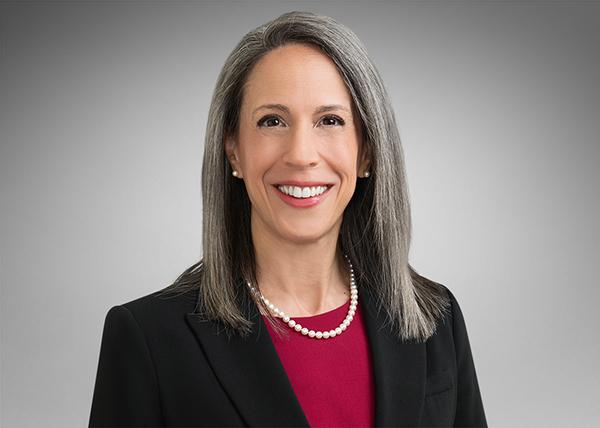On February 13, 2025, hours after Robert F. Kennedy Jr. was confirmed and sworn in as Secretary for the Department of Health and Human Services (“HHS”), President Trump signed an Executive Order (“EO”) entitled, “Establishing the President’s Make America Healthy Again [“MAHA”] Commission.”
The EO begins by stating that American life expectancy lags behind that of other developed countries, with chronic and mental health conditions on the rise. The EO explains that the United States experiences high rates of cancer, asthma, autism spectrum disorders, autoimmune diseases, and obesity in adults and children, and that this trend poses significant threats to national health, economy, and security, necessitating urgent action. To address this “growing health crisis in America,” the EO states that the nation must redirect its focus “in the public and private sectors” toward understanding and dramatically lowering chronic disease rates and ending childhood chronic disease.
The EO mandates that it shall be the Federal Government’s policy to combat aggressively the critical health challenges facing Americans, under which policy the government will promote “transparency and open-source data” and eliminate conflicts of interest in federally funded health research. The National Institutes of Health (“NIH”) and other funded research will prioritize gold-standard research on “the root causes of why Americans are getting sick,” and agencies will ensure there are expanding treatment options and insurance coverage to support lifestyle changes and disease prevention.
The crux of the EO is the establishment of a MAHA Commission, to be chaired by HHS Secretary Robert F. Kennedy, Jr., with the Assistant to the President for Domestic Policy, Vince Haley, serving as Executive Director. It will be comprised of the heads of multiple departments, agencies, and offices within the White House including, among others, Secretary of Agriculture (Brooke Rollins), Administrator of the Environmental Protection Agency (Lee Zeldin), Director of the Office Management and Budget (“OMB”) (Russell Vought), the Assistant to the President and Deputy Chief of Staff for Policy (Stephen Miller), Commissioner of Food and Drugs (if confirmed, Dr. Marty Makary), Director for the Centers for Disease Control and Prevention (if confirmed, Dr. Dave Weldon), and NIH Director (if confirmed, Dr. Jay Bhattacharya).
The Commission’s “initial mission” will be to advise and assist the President on how best to exercise the President’s authority to address the childhood chronic disease crisis. This includes studying the potential contributing causes of childhood chronic disease, including “the American diet, absorption of toxic material, medical treatments, lifestyle, environmental factors, Government policies, food production techniques, electromagnetic radiation, and corporate influence or cronyism,” informing Americans “using transparent and clear facts,” and providing government-wide recommendations on policies to address the contributing causes.
Within 100 days of the EO, the EO directs the MAHA Commission to submit to the President, through its Chair and Executive Director, a “Make Our Children Healthy Again Assessment.” The assessment will, among many things, identify and describe childhood chronic disease in America compared to other countries; assess the potential over-utilization of medication, certain food ingredients and chemicals and the prevalence of and threat posed by the prescription of serotonin reuptake inhibitors, antipsychotics, mood stabilizers, stimulants, and weight-loss drugs; identify best practices for preventing childhood health issues including on proper nutrition; eliminate undue industry influence on science; and establish a framework for transparency and ethics review in industry-funded projects.
Within 180 days of the EO, the MAHA Commission must submit to the President, through its Chair and Executive Director, a strategy, based on the Make Our Children Healthy Again Assessment, to restructure the Federal Government’s response to childhood chronic disease. Public hearings, meetings, and roundtables can be held on this issue.
The final section of the EO states that nothing in the order should impair or affect the authority granted by law to an executive department or agency and the functions of the OMB Director, and that the EO will be implemented “consistent with applicable law and subject to the availability of appropriations.”
This EO appears to align with HHS Secretary Kennedy statements related to tackling chronic illness by focusing on the nation’s food supply. For example, in his confirmation hearings, Mr. Kennedy stated that “[s]omething is poisoning the American people,” “the primary causes are the changing food supply,” and that fixing this issue was the “number one” priority. He also expressed concerns over the number of food ingredients used in the United States as compared to the EU, describing the framework for ingredients found to be generally recognized as safe (“GRAS”) as resulting in an ingredient being considered “innocent until proven guilty.” Conversely, he has expressed that “if you like a McDonald’s cheeseburger and Diet Coke…you should be able to get them. If you want to eat Hostess Twinkies, you should be able to do that, but you should know what the impacts are on your family and on your health.” Given the bipartisan support in addressing chronic disease, including by examining the food supply, we expect more specific directives and actions on this front.
If you have any questions concerning the material discussed in this client alert, please contact the members of our Food, Beverage, and Dietary Supplements practice.
Back
Back








